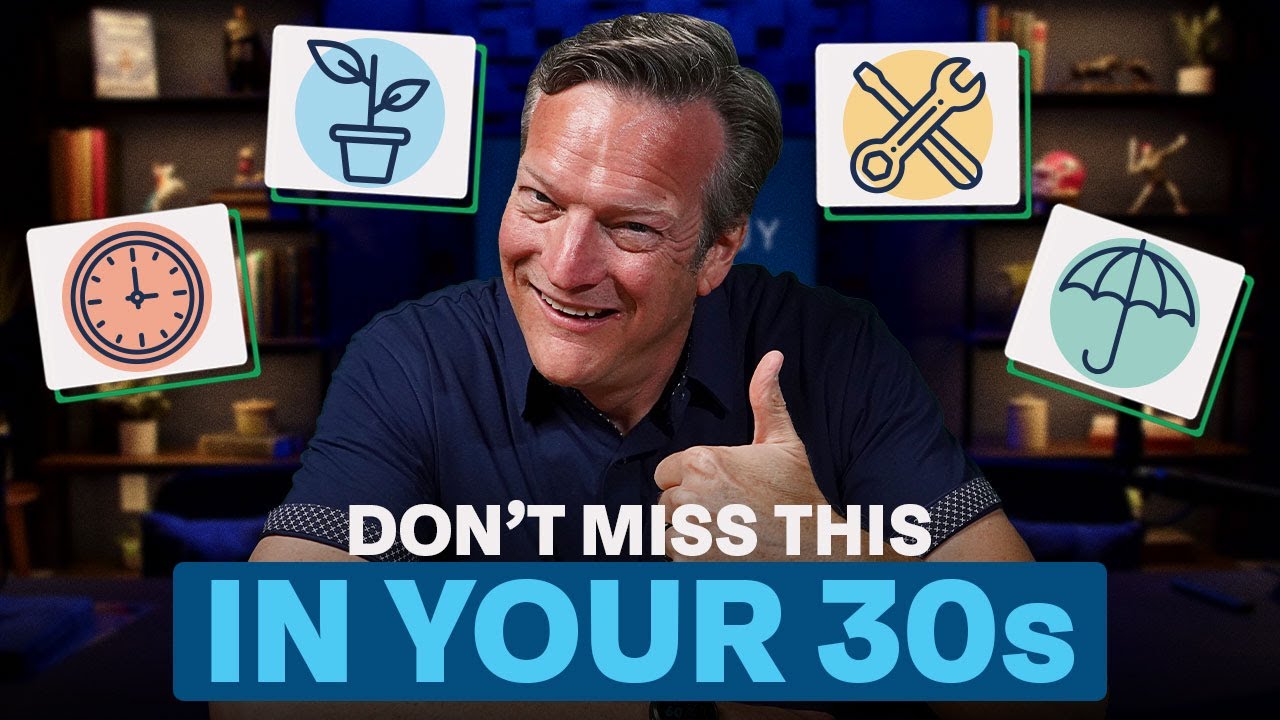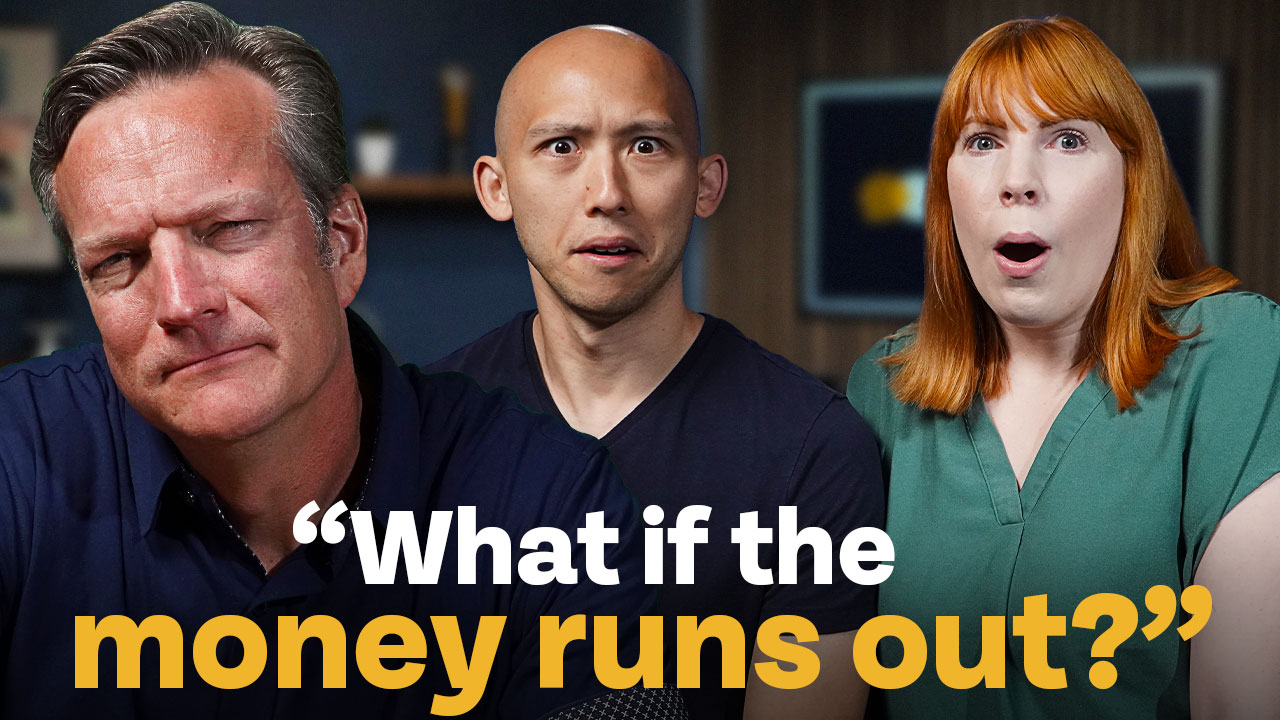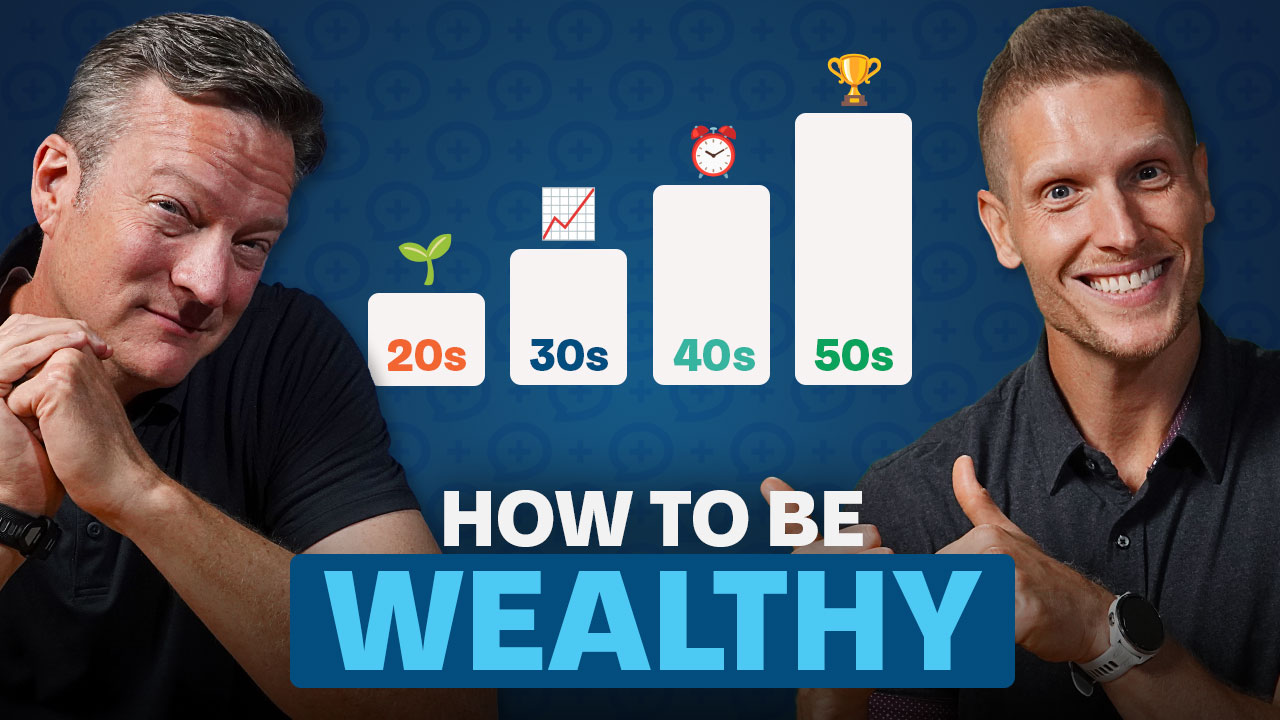"Spear" is up next. Can you explain why you would want to move to a more conservative profile while in retirement? It seems like just keeping the aggressive profile would provide the most wealth in the long run. I also noticed that when you showed the Trinity Study, the 100% equity portfolio had the highest chance of success at 30 years and 50 years. Can you speak to this at all?
Well, some of it depends on standard of living. One of the things that we did not get to talk about in the show, and we have talked about it in previous shows, but in the specific show you're referencing, we didn't get to talk about is that a lot of people take those safe withdrawal rates and they apply it automatically to portfolio value. So whatever the portfolio value is, they'll multiply it by the safe withdrawal rate. That's their standard of living. What we normally see most often is a dynamic withdrawal rate, where someone has a standard of living—I'm going to make up a number because it's stuck in my head—alright, I know that I need at least $40,000 to live off of. Well, in some years, $40,000 might be 4%, but in some years, that might be 4.5%, 5%. In some years, it might be 3%, 3.5%. So if over the long term, you can average that 4%, you can kind of keep yourself grounded there.
Here's what happens: It gets really, really difficult if you have a 100% all-equity portfolio that's super aggressive. You get into one of those years like 2008 when the market lost 37%, or you get into 2022 and the market's down 20%, 25%, and you're still pulling off that—I'm going to use $40,000 example. Well, now that withdrawal rate that was going to be 4% in 2008, that withdrawal rate could have rapidly gone from 4% to 8%, or from 5% to 10% of the portfolio value. It becomes very difficult to overcome that. While you may have the tolerance for the risk inherent in an all-equity portfolio, you might not have the capacity, the time, for that portfolio to recover and make itself back.
Because what happens if, in that same year, there's a need to replace an automobile? Is there a medical emergency? The year that you have, fill in the blank, where you have a larger draw on your portfolio, it's not uncommon, and we've seen this in down years, when someone says, "I need that money." And you take a 4%, 8%, 10%, 15% withdrawal of your corpus or your principal amount. It can be devastating to the long-term sustainability of a portfolio.
Yeah, I wrote down three big things. Is risk tolerance versus risk capacity. You obviously have a high risk tolerance. You don't mind the volatility. But the problem is, as you get older, you just don't have the time to recover. That's the risk capacity portion of this. Let me give you some examples when I talk about time to recover. If you go back and—I'm going to use loosely some things that happened around the 2008 Great Recession. If you lose, let's say, 20%, you know the mathematical calculation on how much you need to make to recover, to get back to break even, is you have to make 25%. So if you lose 20%, you have to have a return of 25% to get back to where you started from. That's what we found. After the 2008 recession with a diversified portfolio, most people absorbed what happened to them in 2008, which was tremendous volatility and it was scary. But by one and a half years into it, meaning going from the beginning of 2008 to about mid-2010, people were back to making money. That's a good thing, because that's how it worked for the typical retiree that was diversified.
However, there were periods in 2008 where the market was down over 50%. If you look at September and October of 2008, when things like the Lehman Brothers stuff went down, Bear Stearns, there was a lot of horrible stuff going down. If you lose 50% of your value, it takes a 100% rate of return to make that money back. We used to show an illustration on risk capacity for people. Instead of it taking a year and a half to get back to break even, it might take you eight to nine years to get back to where you were because you lost so much. And then, as Bo was just sharing, in retirement, you're actually pulling off of that money every month. Can you imagine the market loses 50% of its value? You're still yanking out your distribution for living expenses. You're cutting to the bone. When we're talking about that, that's what diversification allows for you to have. It allows you not to cut into the bone. It doesn't turn this wound where it festers, and then you die from this. You know, that's why when you hear people say, "Don't cut yourself shaving. You could get gangrene." You know, that's why you always—I remember when I did the Jack Daniel's tour, I was so sad when I found out that the reason Jack Daniel's died was he got gangrene in his toe from kicking a safe, supposedly. That's the story. So he stubbed his toe and then died from it because it got infected. So it's one of those things where we don't want you—if you're diversified and planned accordingly, this is something you can recover from. It's just part of the retirement process, the volatility of the market. You're going to be okay. But if you take too much risk and you don't respect the volatility and you're wide open because you saw in the Trinity Study that if you're 100% equities, you're going to rock and roll no matter what, and then you find out that you stubbed your toe by going through a bear market, but it's gotten gangrene, and then you end up dying and leaving, and you're like, "Oh my gosh, maybe this whole risk thing I wasn't thinking about in a 360-degree, complete way. I need to not only think about what I can absorb emotionally. I also need to think about, hey, I'm pulling off of this money every year. Why don't I diversify so that I can minimize that volatility and keep everything superficial? Turn it into a superficial wound versus it being devastating to my long-term success." And I don't care who you are. Well, let me—I don't maybe I don't speak in absolutes, Brian, so correct me. This is too much of an absolute. When you retire, when you go from going out there and earning and working and making your dollars to not living off your dollars, there is a psychological change that takes place. So while you may think, "Oh man, I've got a huge risk tolerance. I can handle a 100% equity portfolio. Oh, I'm not going to freak out. Oh, I'm not going to want to go to cash." I think it was Mike Tyson who said, "Everybody's got a plan to get punched in the face." Sometimes the economy will, in retirement, punch you in the face. And if you have one of those portfolios that's out there flopping, and you see that one million-dollar portfolio in 2008 hit a value of $500,000, it may cause you to make some less than ideal decisions. So if you've built it to where you can focus more on capital preservation than capital accumulation, the peace of mind that you're able to experience in financial dependence is way, way different.
Well, I know, however, because I'm just like you guys, we resemble you. This is—we eat our own cooking. You—I know what happens is that right now, when the market gets beat up while you're working, you're like, "Hot dog, I'm getting these shares. Yes, my portfolio is down, but I'm buying more at this lower price." I want you to take it fast forward to when you have reached this financial independence. You walk away from your day job, and then the market gets its teeth kicked in. You'll be like, "Hot dog, I'm buying—oh wait a minute, wait a minute. I'm not—I'm not buying. I'm not anymore. I'm pulling. I'm actually—I'm doing the opposite. I'm consuming resources while it's getting its teeth kicked in." It is going to kick you like a donkey in a way that you've never experienced. We deal with it all the time with retirees.
I think that's one of the values we offer, and why you need to take the relationship to the next level is this psychological aspect. You only have one retirement that's coming up. We've had hundreds, if not thousands, of people that we've been able to help over the decades. Let us help you walk through that because you don't want to get kicked in the chest and then have this unexpected and make bad emotional decisions because you're just not prepared for it.













